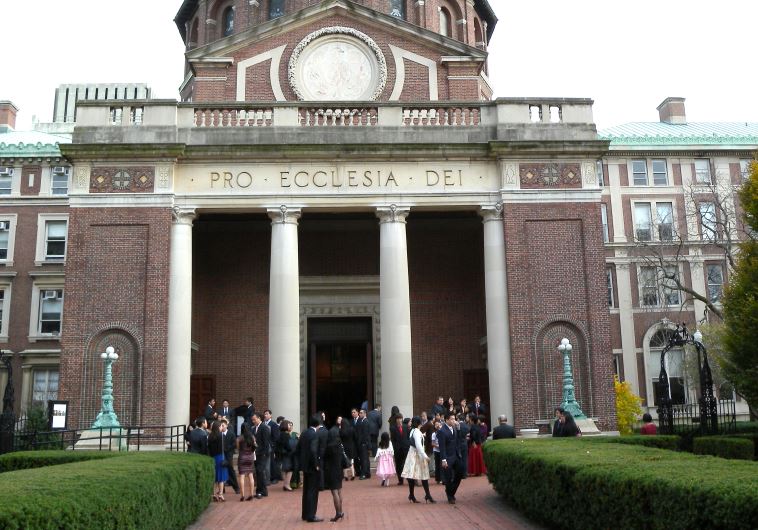Pinocchio’s lies spark dispute at Columbia University’s anti-Israel week
The Pinocchio was designed by Artists 4 Israel to “draw attention to the lies of Israel Apartheid Week.”
 Looking east at St Paul's Chapel of Columbia U(photo credit: JIM HENDERSON/WIKIMEDIA COMMONS)Updated:
Looking east at St Paul's Chapel of Columbia U(photo credit: JIM HENDERSON/WIKIMEDIA COMMONS)Updated: